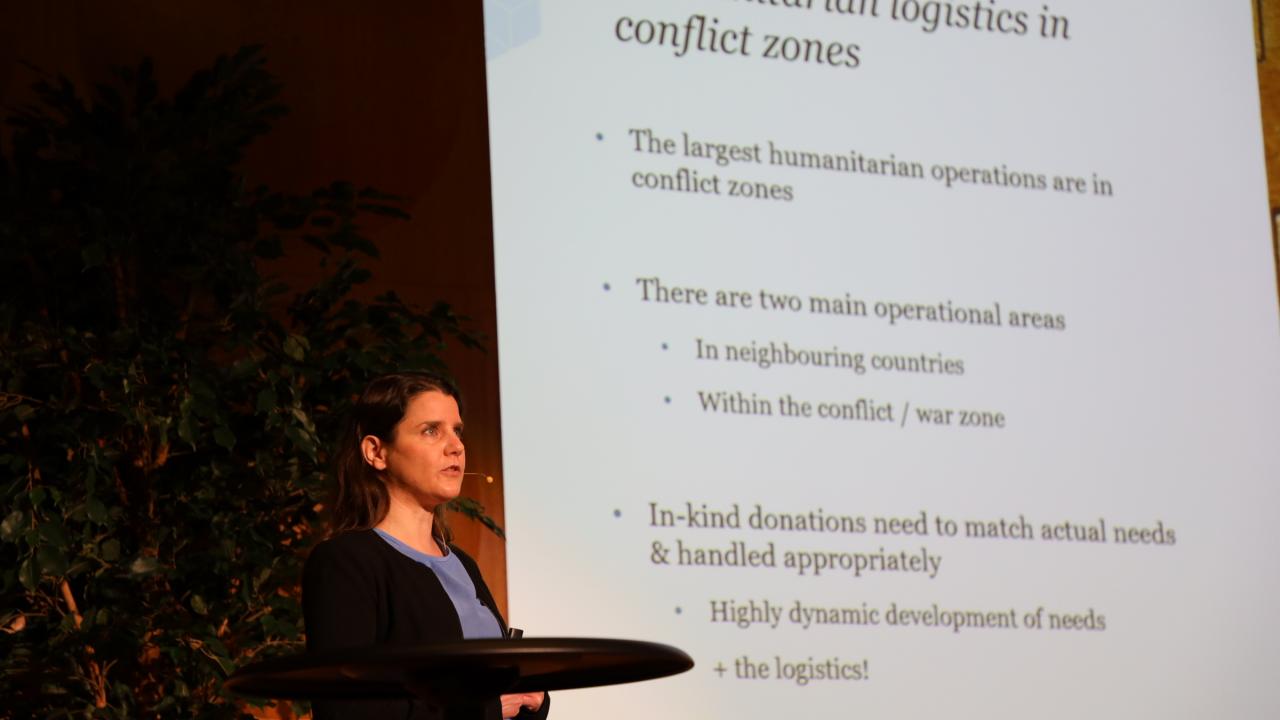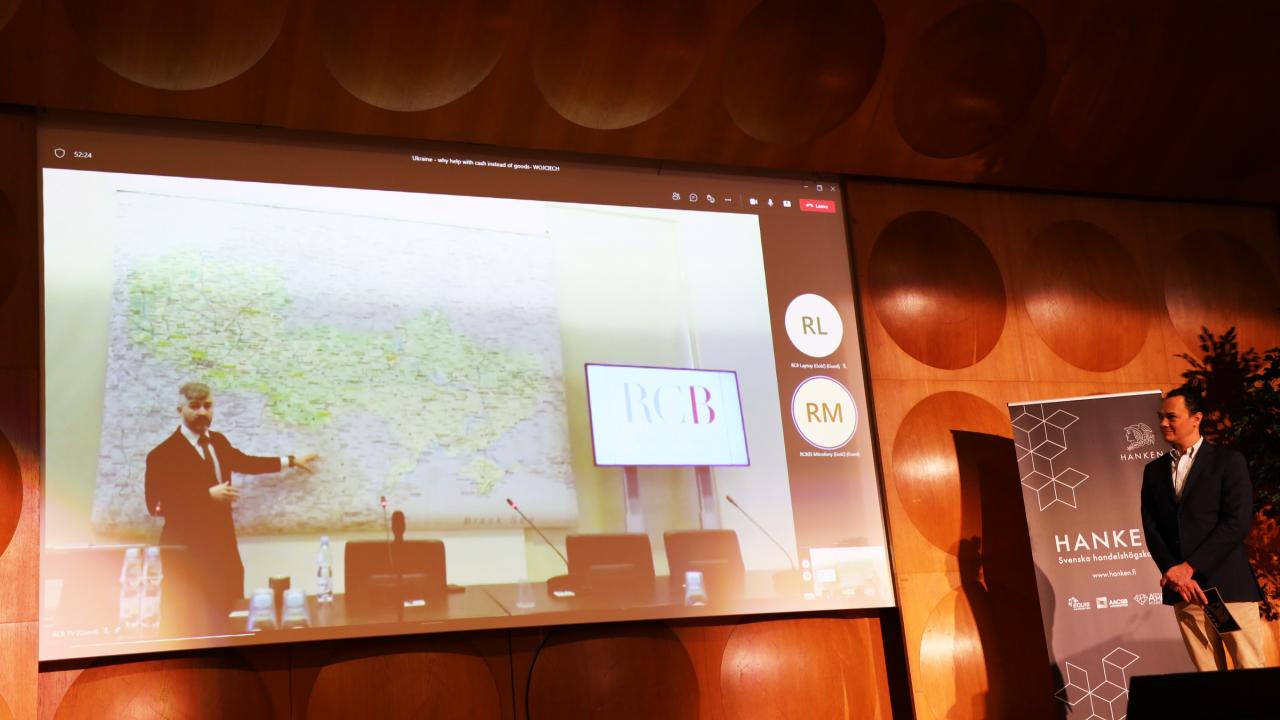Ukraine - why help with cash instead of goods?

If you missed the seminar, you can watch the recording here. Opens in new window
“There is indeed a lot of items being delivered to the conflict zone. There is, however, a complex logistical process behind aid deliveries, says Gyöngyi Kovács, Erkko Professor of Humanitarian Logistics. You must consider customs clearance, temperature control when it comes to food and medicine, sorting, transportation and warehousing”, she continues.
Only few relief organisations are allowed to access the actual war zone, as you need to be invited to the country.
“There are a lot of access constraints in the war zone. The relief organisations have to know which road is safe to take today and where you are allowed to go”, says Kovács.
Dr. Wojciech Piotrowicz, Director of the HUMLOG Institute, is currently working on a research project concerning Ukraine that started already in 2014, and reported live to the seminar from Poland.
“The European border towards Ukraine is short, so we need to optimise the flow of aid. If we send a lot of goods, we might clog the channels that are available to deliver help”, Piotrowicz states.
According to Wojciech Piotrowicz, international NGO’s are at the moment looking for hubs inside Ukraine to deliver aid to the people that are still in Ukraine and in need of help. Amin Maghsoudi, is a HUMLOG Postdoctoral Researcher in a project that focuses precisely on why we should donate funds instead of goods to conflict areas.
“Instead of pushing goods, it’s better to have a pull system. That means that you deliver the goods that are actually needed in a conflict zone based on local knowledge. The needs can also change with very short notice – today they might need winter clothes but not next week, Amin Maghsoudi, points out.
If we donate money, we reduce the delivery time for the aid to reach the goal. We also reduce the cost of delivering the aid itself and we help reducing the pressure on local actors of dealing with the donated goods.
“Donating money that can be used to buy items flexibly on site gives the aid recipients the dignity of choice but also supports the local economy and local producers”, Magshoudi sums up.
Hanken urges all alumni, students, stakeholders, and all staff to get involved and give their support to the crisis in Ukraine. A contribution to a reliable disaster fund is the best way to help the victims of the conflict and the people fleeing Ukraine. With the help of your support, the crisis help distributes food, medicines, and protection in the affected region.
Hanken has many years of collaborative projects with several aid organizations around the world. Below are suggestions of organizations that Hanken collaborates with and that actively operates in Ukraine. Give your support and donate to one of the following organisations, or any other organisation you find appropriate:
Finnish Red Cross Opens in new window
UNHCR Opens in new window
UNICEF Opens in new window


